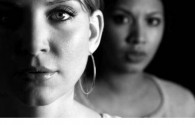Sophie Corlett is responsible for Mind’s policy and campaigning, media, communications, legal and information services work. She is the expert lead for our mental health theme. In her blog, she explains how mental health and wellbeing are often at the heart of supporting women to successfully recover from homelessness.
Mental health, wellbeing and women
One in four of us will experience a mental health problem this year. Mental health problems can happen to anyone and they can affect all areas of a person’s life, including relationships with friends and family, work, finances and physical health.
In addition, the stigma that continues to surround mental ill health can prevent people being open about what is happening to them and often prevents people seeking help.
St Mungo’s Client Needs 2013 survey found that mental health problems are more prevalent among female clients than male clients, with 70% of women in St Mungo’s projects having a mental health problem compared with 57% of men.
We know that self harm and eating disorders are particularly common and that women are at risk of exploitation and abuse as a result of their mental health problems.
The link between mental health and homelessness is reciprocal. Women with mental health problems are more vulnerable to becoming homeless and being homeless can exacerbate or lead to poor mental health.
For these reasons, mental health and wellbeing has been chosen as one of the themes of the Rebuilding Shattered Lives campaign, and I am delighted to come on board as the Expert Group lead for this theme.
Looking in detail at this area will allow us to find answers to some important questions. Does stigma affect women and men in the same way? Do women who are homeless and facing mental health problems need different services to men? How do we get the right help at the right time to women at risk of homelessness?
It is an opportunity to share valuable knowledge across different sectors to improve the services we offer to women. Homelessness and housing services have a long history of partnerships with voluntary and statutory mental health services but rarely have these focussed specifically on the particular mental and physical health needs of homeless women.
As a result, gaps still exist, particularly in cases of dual diagnosis (co-existing mental health and drug or alcohol problems) where people fall between substance use and mental health support. There is also a lack of psychological therapy available for women who have experienced trauma and abuse.
The good news is that there is some great practice out there. We want to bring together examples of best practice to influence future policy and service provision – and I look forward to reading contributions that come in.
In particular we want to hear from practitioners on the ground, as well as women using services themselves, about what works and what support is missing. We are particularly keen to hear about.
- Specialist mental health or wellbeing services for women
- Self harm and eating disorder support services
- Partnerships between mental health and homelessness services that are working well for women
- Move on options and support in the community for women with mental health issues
- Provision for women whose mental wellbeing is affected by domestic violence, prostitution and separation from children.
Improving mental health and wellbeing is key to supporting women to successfully move on from homelessness. I believe everyone can have a future that can be different. By coming together to share our expertise, individual people and organisations have the power to make a real difference and tackle the challenges causing and caused by mental ill health and homelessness in women.
Please submit your contribution and any relevant research – and spread the word about this Rebuilding Shattered Lives campaign – so that we can improve the support available for the women who need us.




